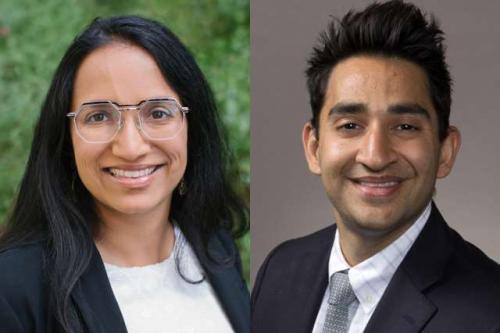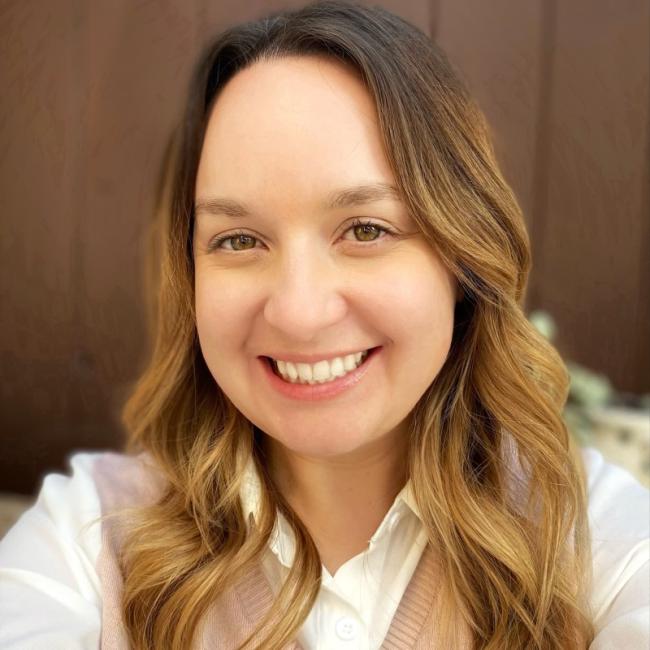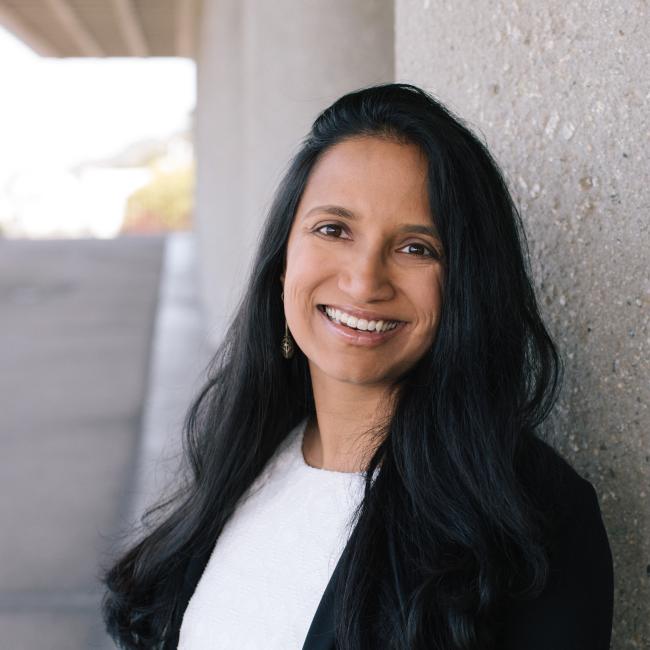
Researchers receive McKnight award to study the evolution of deadly brain cancer
Scientist Dr. Aparna Bhaduri, assistant professor of medicine and biological chemistry, and neurosurgeon Dr. Kunal Patel, assistant professor of neurosurgery, both part of the UCLA Health Jonsson Comprehensive Cancer Center, have received the 2024 Neurobiology of Brain Disorders Award from the McKnight Endowment Fund for Neuroscience, which supports innovative research by U.S. scientists who are studying neurological and psychiatric diseases.
The award, $300,000 over the next three years, supports their efforts in gaining a deeper understanding of the microenvironment's role in shaping human glioblastoma, an aggressive type of brain cancer that is fast growing and difficult to treat.
One of the critical challenges in treating this cancer is the limited understanding of how it develops and spreads. Traditional mouse models and studies of tumors removed from the brain provide limited insights into the tumor's growth dynamics within the brain. To help combat this issue, the team will employ novel techniques to create organoid systems from stem cell lines that closely resemble the human brain environment. These organoids will then be implanted with tumor samples collected by Patel from surgical patients.
Bhaduri and her lab will use these models to explore the lineage relationships of the glioblastoma cell types and their evolution as the tumor progresses. By examining the roles of different cells within the core, periphery, and various parts of the tumor, the team hopes to reveal critical insights into the tumor's development and its interaction with its environment.
“We are incredibly grateful for this grant, which will allow us to delve deeper into the complex interactions between glioblastoma and its surrounding environment,” said Bhaduri, who is also a member of the Eli and Edythe Broad Center of Regenerative Medicine and Stem Cell Research at UCLA. “By understanding these dynamics, we hope to identify new strategies to disrupt tumor growth and improve patient outcomes.”

